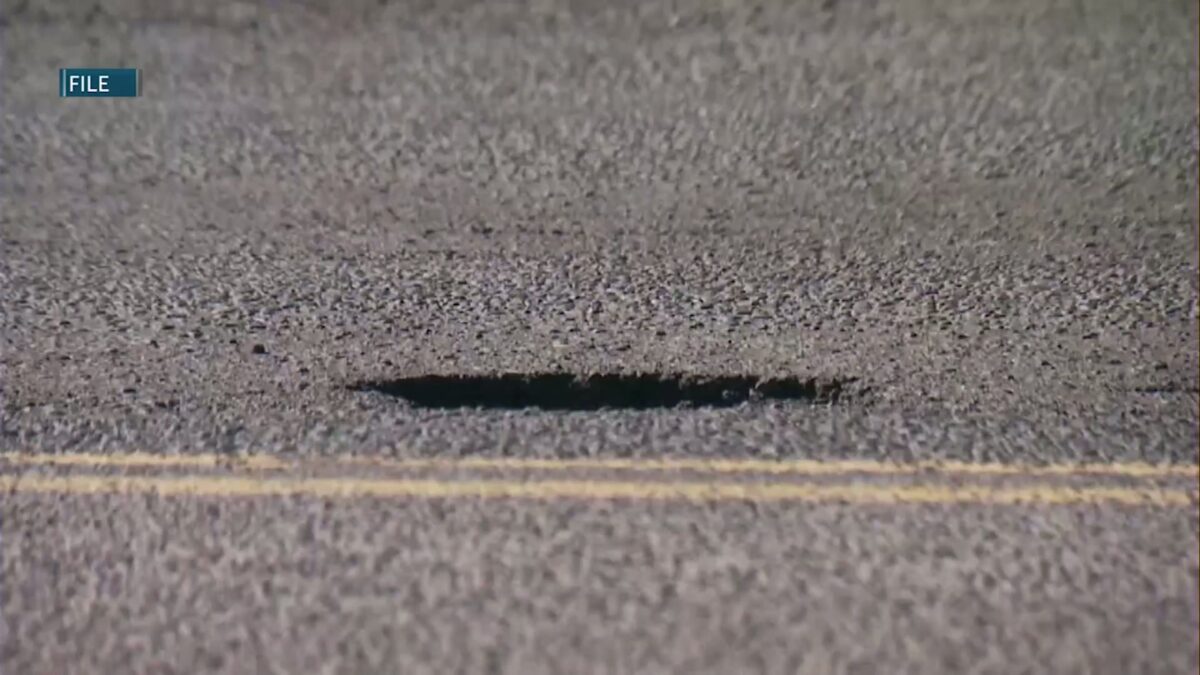Governor Kotek pitches gas and payroll tax, fee hikes to avoid ODOT cuts; GOP calls proposal ‘tone-deaf’

Barney Lerten
(Update: Adding update from Governor Kotek, Adding House Republican leader’s reaction to proposal)
SALEM, Ore. (KTVZ) – Governor Tina Kotek unveiled more details Thursday of her proposed funding solution of tax and fee increases lawmakers will take up at an August 29 special session. She said the proposal, if approved, will “preserve critical transportation and maintenance services for Oregonians, protect the jobs of hundreds of essential workers across the state, and preserve transit services.”
A top Republican lawmaker again blasted the proposal, calling it a “tone-deaf” package that would “hurt struggling families.”
The proposal follows up on the initial details she outlined to reporters last month, including a six-cent-a-gallon gas tax hike and increases in the state’s payroll tax and vehicle registration and title fees.
Here’s the rest of her news release, followed by one from Oregon House Republican Leader Christine Drazan:
The proposal would deliver adequate funding for the State Highway Trust Fund in the 2025-27 biennium, while maintaining Oregon’s emergency funds for urgent needs, such as wildfire suppression.
“In the weeks since the adjournment of the legislative session, my team and I have worked every day with legislators, local partners, and key stakeholders to zero in on a focused solution for the immediate crisis in our transportation system,” Governor Kotek said. “I am confident that lawmakers will step up this month to avert these layoffs, and I appreciate their partnership in getting to the other side of this crisis.”
 Table of proposed gas tax and fee hikes to cover ODOT funding shortfall
Table of proposed gas tax and fee hikes to cover ODOT funding shortfall
“The Governor’s proposal is a targeted, near-term, and necessary fix to a statewide crisis. We must protect the jobs of ODOT employees whom we rely on to keep our roads and bridges safe,” Senate President Rob Wagner (D-Lake Oswego) said. “For decades, Oregon has underinvested in the safety and maintenance of our roads, bridges, and transit options. This proposal doesn’t solve all the funding challenges facing our statewide transportation system, but we have an opportunity with this legislation to keep Oregon on a path toward a fair and stable funding system that puts safety first.”
“This proposal is about keeping Oregonians safe; making sure that every community – urban and rural – has functioning roads and transit; and holding ODOT accountable to Oregon taxpayers,” House Speaker Julie Fahey (D-Eugene) said. “We’ve heard from mayors, county commissioners, and transit leaders across the state who have been clear that the stakes are real and the timeline is urgent. We need to take action before harmful cuts to transportation services take effect.”
If additional revenues for the State Highway Fund are not secured during a special session, a first wave of layoffs will go into effect on September 15, and a second wave is slated for January 2026.
Here is the governor’s transportation funding proposal released Thursday:
Transportation Funding Proposal One PagerDownload
News release:
HOUSE REPUBLICAN LEADER RESPONDS TO GOVERNOR’S TRANSPORTATION TAX PACKAGE THAT RAISES TAXES, HARMS STRUGGLING OREGONIANS
SALEM, ORE. — House Republican Leader Christine Drazan (R-Canby) released the following statement in response to the governor’s tone-deaf transportation tax package that takes from family savings accounts instead of using available funding:
“The governor’s tax package is going to hurt struggling families. Oregonians will be paying more but getting less—no new lanes, no improved bridges, just higher taxes. House Republicans proposed using money from the state’s Legislative Emergency Board to protect maintenance and preserve essential jobs that keep our roads safe, but the governor rejected any plan that didn’t raise taxes. Her plan to cut maintenance workers was dangerous and wrong, and her push to raise costs at the pump is extreme and out of touch. She should listen to Oregonians, work across the aisle and pursue a measured approach to the transportation needs of the state without forcing the largest transportation tax increase in Oregon’s history.”